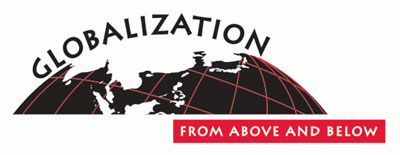Schedule of Events
Library Resources

Center for Ethics
Fall 2007
Globalization From Above and Below
We hear the word globalization nearly every day. It's a word used by journalists, politicians, economists, activists, and academics. Retailers even highlight the global origins of their products as a marketing tool. But what does globalization really mean? To many, it's a broad term used to describe the interpenetration of states, markets, communications, and ideas across borders. It thus signifies the multiple processes through which the world's peoples and nations have been and are being knit together into an interdependent whole. To others, however, globalization is a largely human issue. Because global systems affect communities and individuals, globalization is a potent force shaping human experiences and identities, and as such it has many personal benefits and costs.
In this semester-long series, which will be connected to another campus-wide programming initiative, Facing East/Facing West: Asia Without Boundaries, we'll explore the various meanings of globalization and its ethical implications. We'll look from above at the processes and technologies that have shaped globalization, while also paying close attention to the way these processes have acted from below to affect peoples of the world. How, for example, have the world's governing political, economic, social, and cultural structures been changed by globalization? How do these changes influence diplomacy, trade, and labor relations? Do they change the way we respond to public health concerns, or natural disasters? How do they affect technology and popular culture? Just as important, how has globalization encouraged various grassroots and indigenous movements to affect larger institutional structures? To what extent can individuals shape the evolution of these world systems? To what extent are they shaped by them? In the end, our goal is to uncover the tensions and fault lines inherent in globalization so that we might better understand how and why it has become a key issue of our time.

